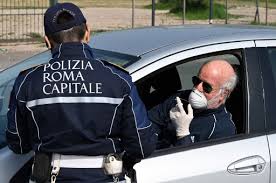Italy: Up to €3,000 fine for breaking quarantine rules

Rome: Italian Prime Minister Giuseppe Conte announced in his latest live-streamed address that bigger fines will be imposed for breaking the quarantine rules.
Anyone found out on the streets without a legitimate reason to face fines up to a maximum of 3,000 euros.
From Wednesday, the penalty went up from the current 206 euros to 400-3,000 euros, Conte stated.
“Everyone must do their part,” Conte said. He denied reports earlier today in Italian media that the decree would allow police to confiscate cars and other vehicles, and stressed that “the food supply chain and fuel will always be guaranteed.” Conte added that he was “very confident” that Italians could resume their normal lives before the current general state of emergency expires on July 31. “The state of emergency for six months does not mean restrictions last until July 31st,” he said. “We are ready to loosen the measures at any moment, we hope very soon”. Though the premier said last Thursday that the quarantine period “will be extended” beyond the original deadline of April 3rd, no further details have yet been given.
The latest decree also makes it easier for regional governments to bring in their own, stricter rules – as many have already done. “Governors can adopt more restrictive measures. But the coordination function remains with the government” While the death toll rose to 743 – up from 601 on Monday – data also showed that the number of infections had fallen slightly. The head of the Civil Protection Department, Angelo Borrelli, warned earlier on Tuesday that the real number of infections could be ten times higher then the number detected. The world is watching closely for a sign of hope from Italy, where more than 6,000 people have died during the coronavirus outbreak so far.
The data from Italy’s regions is of crucial interest to global policy makers and medical experts, watching keenly for signs that strict national quarantine measures imposed two weeks ago have worked.The latest decree also makes it easier for regional governments to bring in their own, stricter rules – as many have already done.





